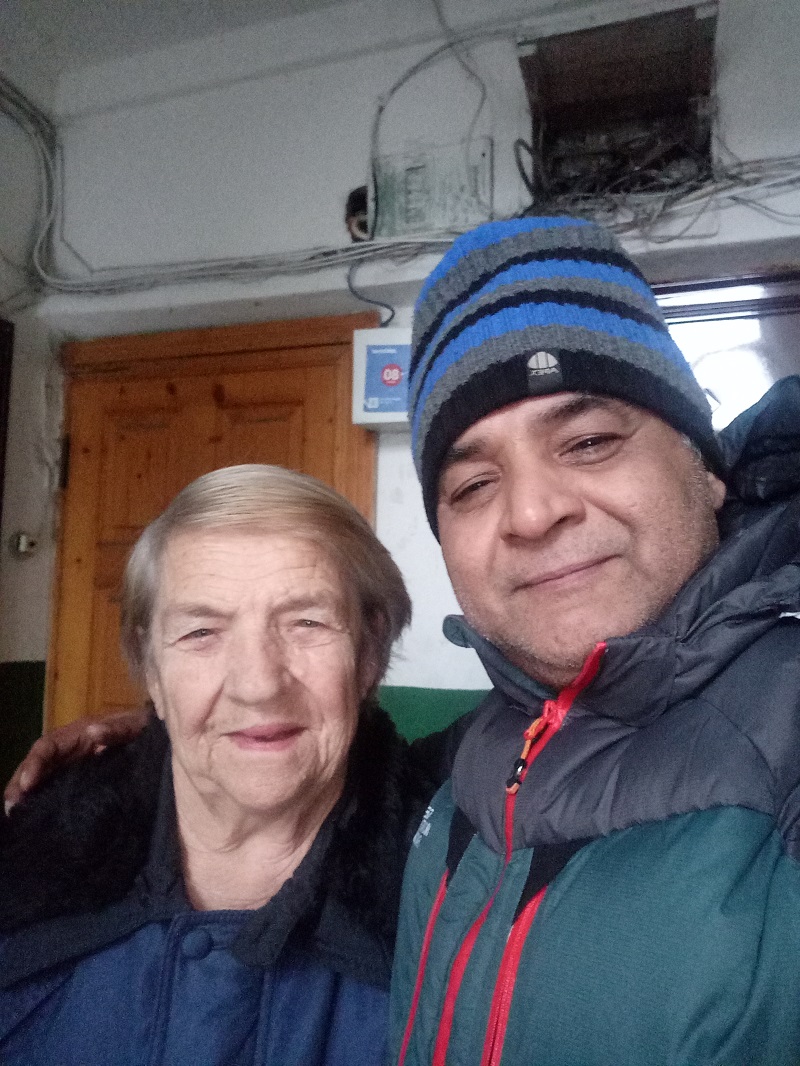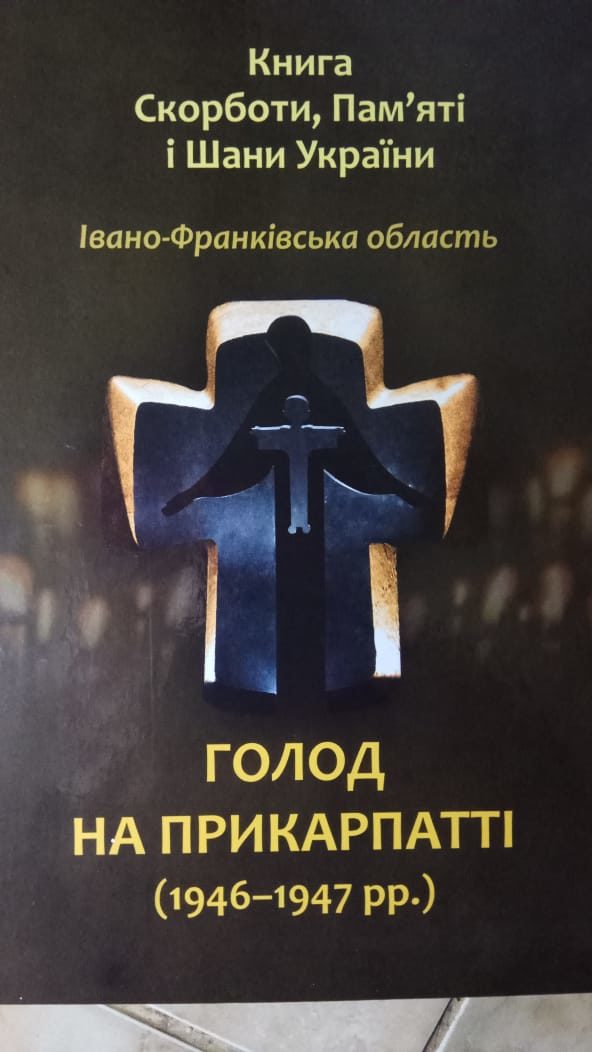By Agha Iqrar Haroon
“It was hunger all around nevertheless Holodomor period was over before I was born but fear of hunger never left us alone after disastrous man-made famine which left millions of people dead with hunger and cold. The terror of Holodomor is still hiding inside all of us. It is still living deep inside me”.
These thoughts were shared by Olga Ivanovna Verzhbitskaya (Ольга Ивановна Вержбицкая) with me when I visited her apartment in a small town of Ivano-Frankivsk Oblast of Ukraine.
An 83-year-old Olga Ivanovna was born in Chernihiv Oblast but spent her youth in Ivano-Frankivsk Oblast. Chernihiv is situated at the bank of Desna River around 150 km to the north-north-east of Kiev.
Chernihiv is a historic city which serves as the administrative center of the Chernihiv Oblast (province). Chernihiv Oblast was created as part of the Ukrainian Soviet Socialist Republic on October 15, 1932.
According to archaeological excavations, the capital city of Chernihiv has known human settlement for over 2,000 years therefore Chernihiv Oblast comprises of a very important historical region, notable as early as the Kievan Rus period. The city of Chernihiv was the second most important Ukrainian city during the “Rus Period” of Ukrainian history.

Her (Olga Ivanovna) graceful face tells a story of a beautiful woman of past who finished her education as civil engineer and was activity involved in construction and reconstruction of her small town before she went for retirement.
The way she narrated her childhood that was mars by second world war (WWII), touched my soul. She talked less but her eyes told me more—a story of agony and a dreadful past. She told me that authorities also took away all food from her family during Holodomor but her parents survived to narrate story of Holodomor to their next generation.
She had excellent and crystal clear memory though she is 83 year of ago and her way of narrating past was so strong that I could walk along with her in old streets of her town and could feel chilling rooms in endless frozen nights without heating where she used to live during her childhood.
She lost several relatives who died of hunger before she was born but one can still see pain on her face for those with whom she never met but heard stories about them who were purged by powerful communism.
Though I left her small apartment weeks ago but I still smell around me a strong fragrance of Ukrainian patriotism and nationalism that she radiated during her discussion to me. I do not know much about Ukrainian people because my interaction is still limited and my stay was quite brief in the land of black soil but I can tell my readers that Ukrainian nationalism runs inside every Ukrainian like blood in veins and can consider Olga Ivanovna Verzhbitskaya a symbol of Ukrainian nationalism.
During my stay in Ivano-Frankivsk, I had an opportunity of meeting a TV producer and journalist Natalia Dimnich. She was introduced to me by the First Secretary the National Union of Journalists (NUJU) of Ukraine Lina Vladimirovna Kush. Natalya brought me an excellent book as a gift and this book which is full of stories of grief and painful memories about Holodomor. This gift of book “Hunger to Prikarpatye (! 946-1947rr.) was very symbolical for me because I got this book a day before the Ukraine had been observing remembrance about the victims of Famine-Genocide (Holodomor) and I could see lit candles in every window I passed trough when I was travelling in and around Ivano-Frankivsk city.

This book is full of information gathered through different sources including interviews with members of Organization of Ukrainian Nationalists (OUN), materials from funds of the State archive, research papers of historians and reminiscence of eyewitnesses. This book opens the truth about the tragic page of the past of Prikarpatye— Carpathian region (Прикарпатье).
The book is a tribute to the memory of the victims of the cruel political system of Russian-communistic totalitarianism and a leaves a message of caution for modern and future generations :— it (Holodomor) never has to repeat.
This book indicates that there is a misconception that Western Ukraine was not haunted by Holodomor. Such books will surely help readers to know about the intensity of Holodomor because this man-made famine and hunger purged Ukrainians and left over 7.6 million Ukrainians dead with hunger.
